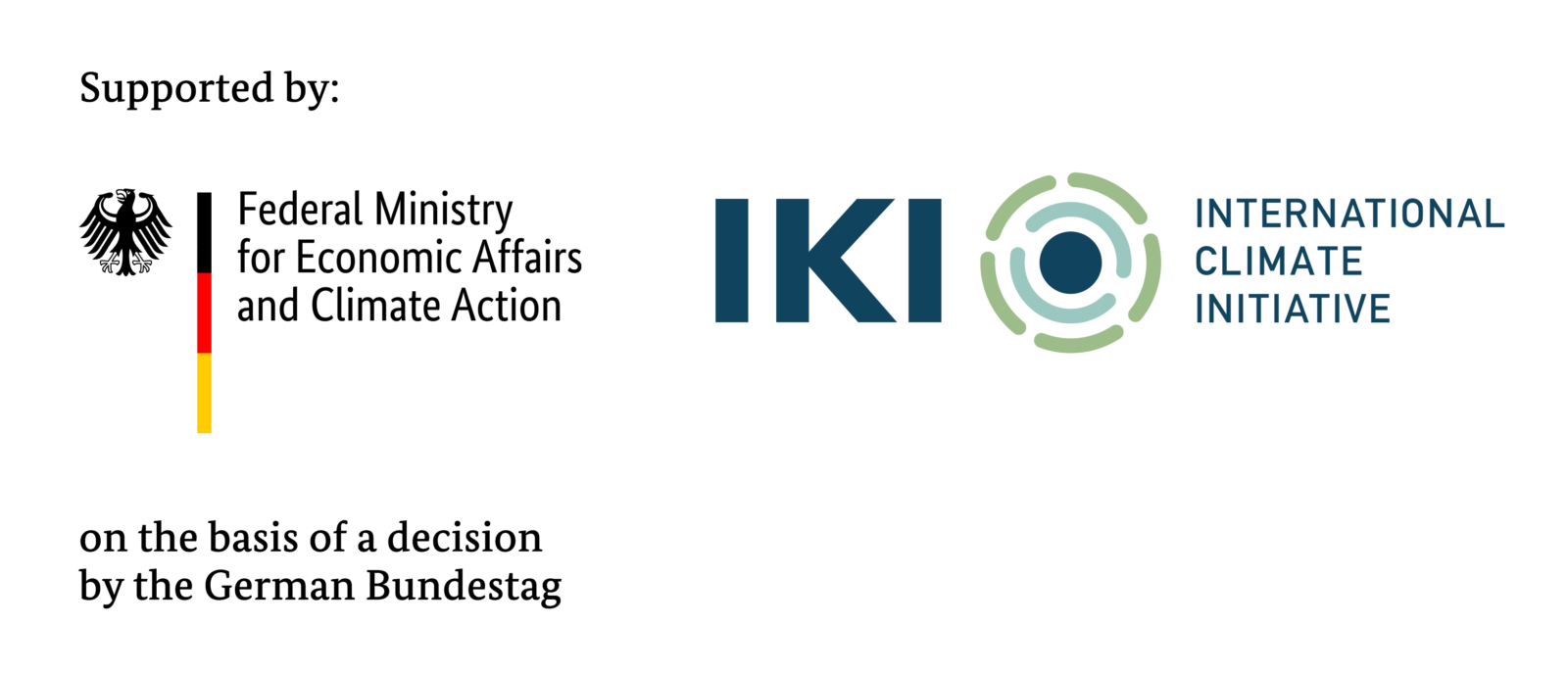Interactive COVID-19 Workshop
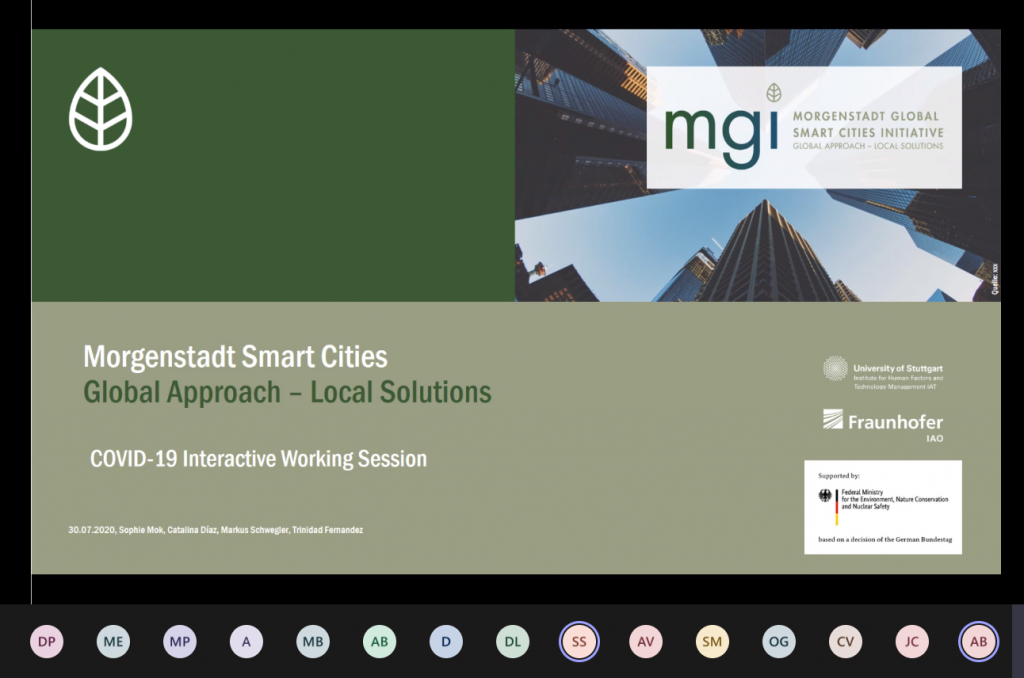
On 30 July 2020 the first COVID-19 Interactive Working Session of the Morgenstadt Global Smart Cities Initiative (MGI) was held. The objective was to create a space to exchange and learn from each other by identifying COVID-19 impacts and challenges and defining ways in which the project can contribute to a more resilient future.
Participants included team members and partners from municipalities, academia and institutions of all three pilot cities. Project Coordinator Markus Schwegler welcomed all participants and initiated the session, which was led by Sophie Mok, responsible for MGI Capacity Building. The introduction consisted of short presentations on the ways in which each of the three pilot cities Kochi, Saltillo and Piura responded to the outbreak of the Coronavirus
COVID-19 Responses of Kochi, Piura and Saltillo
The first presentation was held by Debjani Ghosh, MGI Research Coordinator from the National Institute of Urban Affairs (NIUA), she reported that as the second largest city of the state, Kochi recorded the first COVID-19 case in Kerala. Initially the state was very successful in dealing with the pandemic on a grass root-level via thorough testing, quarantine, health and hygiene campaigns as well as relief packages, as it had experienced a previous virus-scare with the Nipah virus in 2018. However, factors like the economic crisis, the return of expatriates and migrant workers as well as the impending monsoon season contribute to the fact that the numbers of COVID-19 cases are on the rise again (*July 30: 10,350 active cases and more than 1,000 new cases every day in the state).
Local MGI coordinator Stella Schroeder from the University of Piura gave insights into the situation in Piura, where after 107 days of isolation, the Government of Peru announced the end of quarantine on July 1.
Despite the measures taken to fight the pandemic like disinfecting public spaces, traffic restrictions and social distancing methods, factors like inequality regarding access to the health system and corruption have contributed to a rise in cases in Peru.
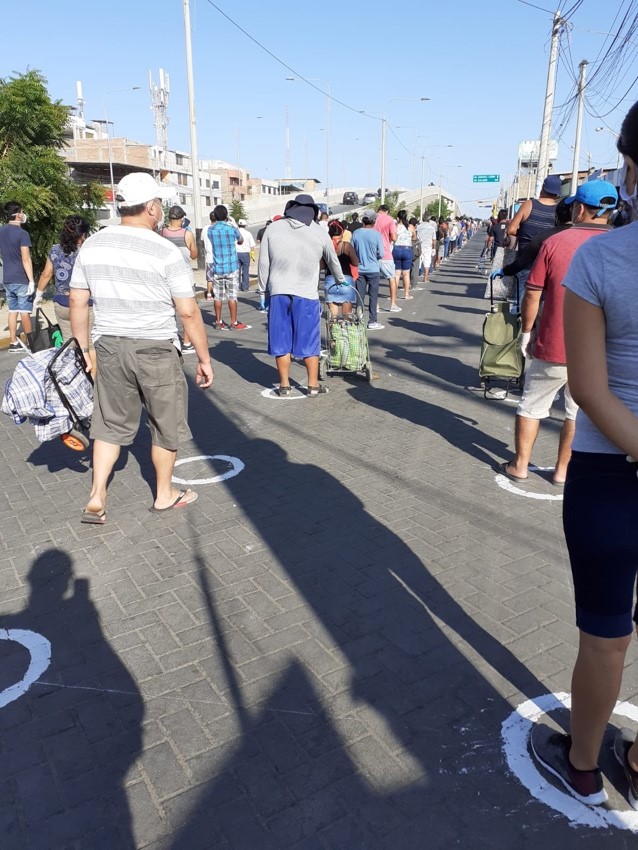
For many citizens, the lack of access to health care, digital services and safe public transport has made staying home impossible. Economically speaking the pandemic resulted in a significant drop of the GDP within the range of -13.8% and 15.8%* and the loss of jobs for 2.6 million* people in Lima alone. (*July 30)
Local MGI Coordinator Xanin García from the Municipal Institute of Planning (IMPLAN) elaborated on the situation in Saltillo. Situated in the southeast of the state Coahuila, Saltillo is one of the areas with the lowest COVID-19 incidence rate (*July 30: 160 cases per 100,000 inhabitants) as well as lowest mortality rate in north Mexico. To counter the pandemic, the Subcomité Técnico Regional Covid-19 Sureste was formed, dedicated to prevention, coordination and participation. Public spaces are being disinfected and there are confinements as well as awareness campaigns, counting on the active participation of citizens. An economic reactivation plan has been initiated, reopening establishments while following health protocols. However, the process of reopening sectors has also produced a renewed surge in COVID-19 cases.
COVID-19 Impacts, Challenges and Links to Climate Action
In the collaborative part of the workshop there were three working sessions, concerned with COVID-19 impacts and challenges in different sectors and linking COVID-19 responses to climate action. The participants were invited to share ideas and opinions on the interactive platform Mural using digital sticky-notes, color-coded for each city, for brainstorming, discussing ideas and voting on certain topics.
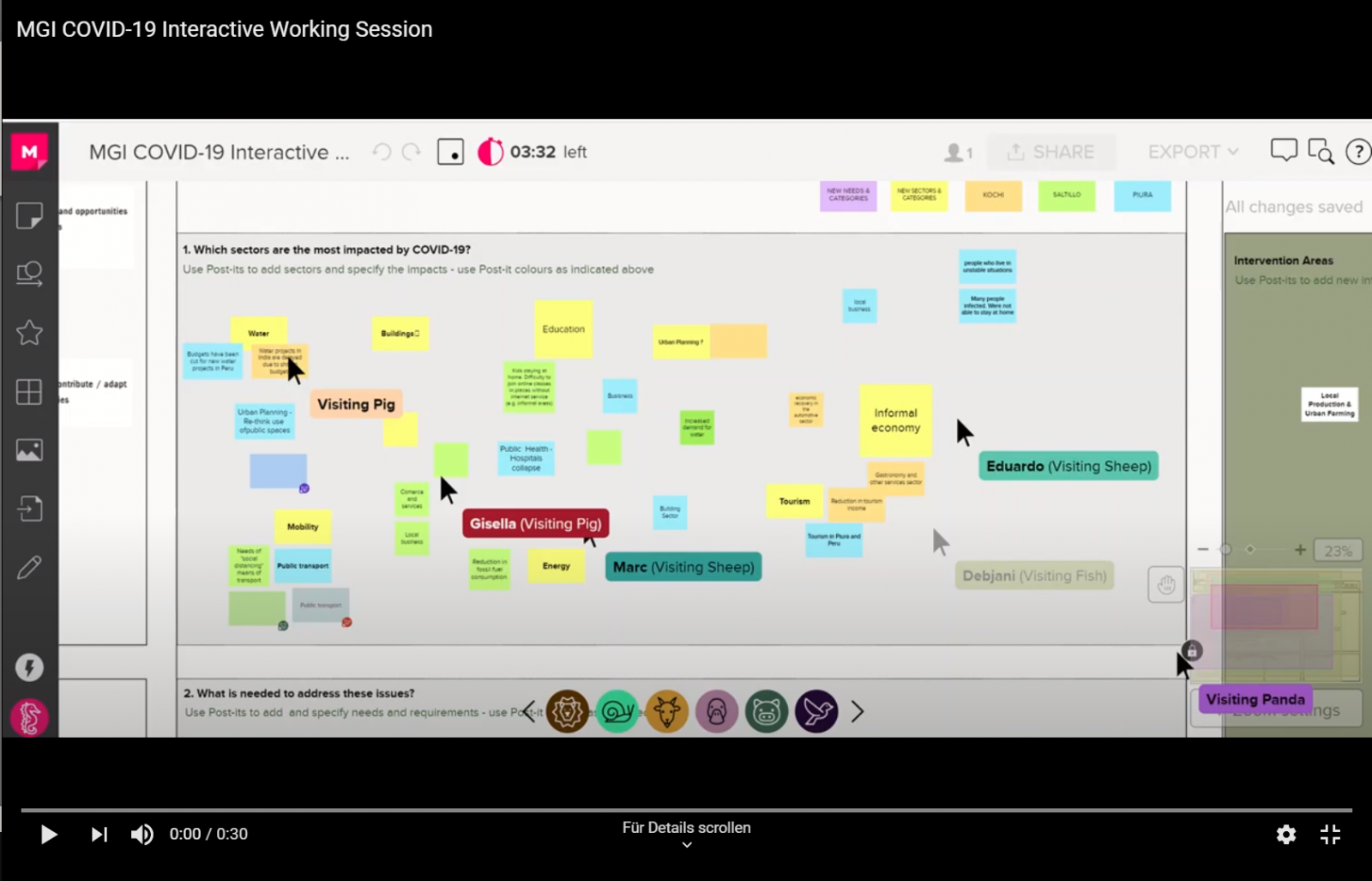
Wenn du eingebettete Videos auf dieser Seiten sehen möchtest, werden personenbezogene Daten (IP-Adresse) an den Betreiber des Videoportals gesendet. Daher ist es möglich, dass der Videoanbieter deine Zugriffe speichert und dein Verhalten analysieren kann.
Wenn du den Link hier unten anklickst, wird ein Cookie auf deinem Computer gesetzt, sodass die Website weiß, dass du der Anzeige von eingebetteten Videos in deinem Browser zugestimmt hast. Dieses Cookie speichert keine personenbezogenen Daten, es erkennt lediglich, dass eine Einwilligung für die Anzeige der Videos in deinem Browser erfolgt ist.
Learn more about this aspect of our privacy settings on this page: Datenschutzerklärung
Show Videos
Alternatively, you can use this link to go to the video provider directly: https://www.youtube.com/watch?v=o77WkRRK-NM
Regarding the sectors that have been impacted the most by COVID-19, there was a common assent across all countries that mobility, tourism and the health sector are most affected by the pandemic. Discussion points were the difficulty of maintaining social distance on public transport, which is vital for the livelihood of the majority of citizens in cities, as well as the drastic decline in tourism and the situation of migrant workers, especially in India, who are effectively part of an informal sector not regarded in mainstream economics.
With the onset of the pandemic this group found itself without housing and wages and was prevented from returning home due to the travel restrictions. Regarding the manner in which these issues should be addressed, policies and science-based decision-making involving actors form various sectors like academia, government and private companies were suggested.
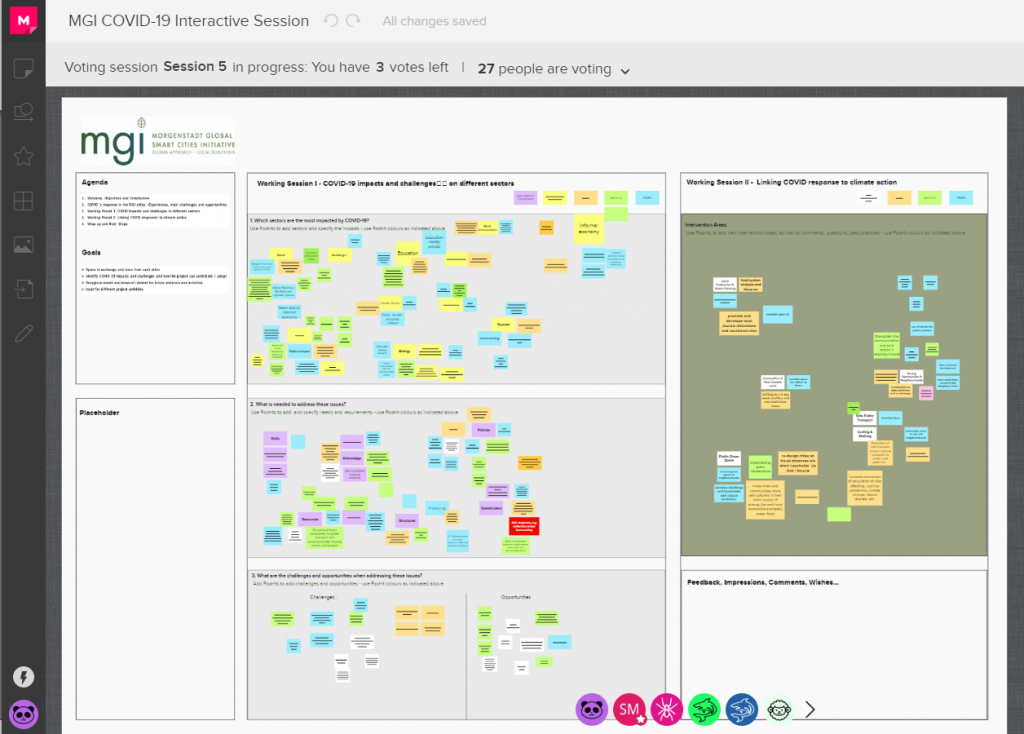
The pandemic, as devastating as it is for global society, seems to make a habit of bringing social issues to the forefront, enhancing their visibility and ultimately enforcing respective actions. In the case of the problematic situation for migrant workers in India for example, a register to determine the percentage of migrant workers in each state was established with the intention to implement policies for housing and wages.
Another topic inevitably tied to COVID-19 is digitization, a process which on the one hand is highly accelerated due to the novel needs of communication and on the other hand was revealed to be severely lacking in its development in many areas of the world. Concerning the challenges and opportunities of addressing the respective issues, the technical aspect of lacking digital infrastructure was discussed as well as the cultural and behavioral implications, as there are demands placed on society for adapting to new modes of working and socializing as well as complying to non-mandatory recommendations and COVID-19 measures.
Learning from COVID-19 as Opportunity
Concentrating on the opportunities, topics like sustainable mobility, local food production and digitization were brought up, representing more sustainable ways of living that were (re)discovered by citizens during the restrictive measures taken by governments. Connected to that, the second working round was dedicated to linking COVID-responses to climate action. MGI Project Manager Catalina Díaz gave a quick input-presentation on examples of innovative and sustainable ideas that are emerging in areas like public green spaces, home office as well as local production and urban farming.
One important aspect that was highlighted is the relevance of strong communities and neighborhoods, as in each city, grass-root efforts in the form of organizations, initiatives and neighborhood councils play an integral part in ensuring access to
resources and services on the local scale. Two key areas that gained even more importance during the pandemic are safe public transport as well as cycling and
walking, here efforts must be made to protect and advantage the most vulnerable and at the same time most sustainable mobility participants.
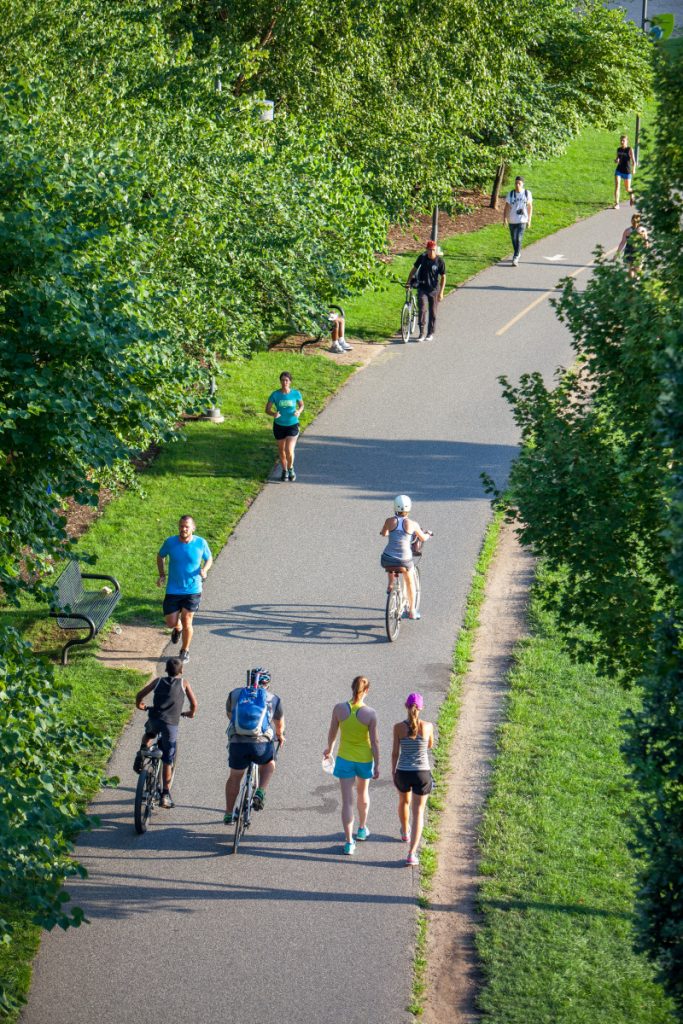
The workshop posed as a fruitful space for exchange and discussions on the “new normal” of COVID-19, therefore more sessions discussing certain issues and action fields in more detail are currently in planning as part of the capacity-building activities of the project. One important takeaway is that despite the hardships caused by the pandemic it also offers an opportunity for rethinking urban planning and integrating pandemic resilience in the context of climate resilience. Learning from this pandemic is an integral part of making our societies and cities future-proof.

